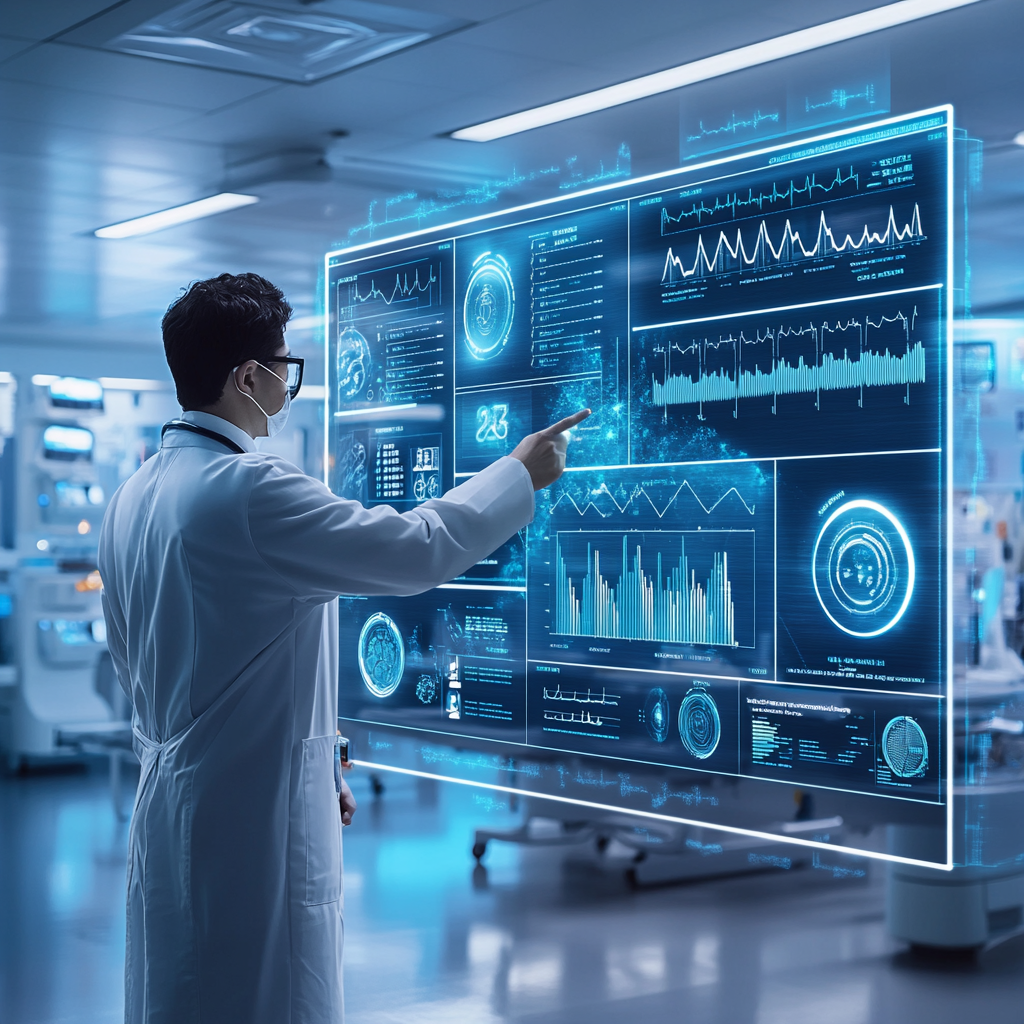Dr. Marco V. Benavides Sánchez.
In the rapidly evolving landscape of healthcare, artificial intelligence (AI) has emerged as a revolutionary force, poised to redefine the traditional paradigms of medical practice. The oft-quoted assertion that “AI will not replace doctors, but doctors who use AI will replace those who don’t,” underscores a future where technology and human expertise merge to enhance the efficacy of healthcare services. This article delves into the ways AI is transforming medicine, improving diagnostic accuracy, enabling predictive analytics, facilitating personalized treatment, optimizing workflow, and discussing the challenges that accompany its integration into healthcare systems.
Enhancing Diagnostic Accuracy
One of the most significant contributions of AI in healthcare is its ability to augment the diagnostic accuracy of physicians. AI algorithms, particularly those used in image recognition, have demonstrated remarkable proficiency in analyzing medical images such as X-rays, CT scans, and MRIs. These tools can detect subtle abnormalities that may escape the human eye, offering a level of precision that significantly aids in the early detection and treatment of diseases like cancer.
A striking example of AI’s capability is its application in radiology. Studies have shown that AI can help or hinder human radiologists’ performance depending on the context and the specific tasks at hand. While AI may not yet match the nuanced judgement of experienced radiologists, it significantly reduces their workload by pre-screening images and highlighting potential areas of concern. This synergy allows radiologists to focus on more complex cases and interpretive tasks, ultimately enhancing the overall diagnostic process.
Predictive Analytics: Forecasting Medical Outcomes
AI’s ability to sift through vast amounts of patient data and identify patterns enables predictive analytics, a tool that can foresee medical outcomes with a high degree of accuracy. By integrating data from various sources—including past medical records, genetic information, and lifestyle factors—AI models can predict patient-specific risks such as potential post-surgical complications or the likelihood of adverse reactions to medications. This foresight allows healthcare providers to implement preventive measures, tailor treatments to individual needs, and significantly improve patient outcomes.
For instance, in Connecticut, AI systems are already being used to predict medical outcomes such as hospital readmissions and severe patient complications. This proactive approach in healthcare not only enhances patient safety but also reduces unnecessary costs by preventing avoidable health crises.
Personalized Medicine: Tailoring Treatment to the Individual
Perhaps one of the most promising aspects of AI in healthcare is its potential to facilitate personalized medicine. By analyzing a patient’s genetic profile alongside environmental and lifestyle factors, AI can help doctors develop customized treatment plans that are both more effective and have fewer side effects. Personalized medicine represents a shift from the traditional one-size-fits-all approach to a more targeted and efficient strategy, emphasizing the importance of individual patient care.

Efficiency and Workflow Optimization
AI also offers practical solutions to improve efficiency within healthcare settings. From automating routine administrative tasks like scheduling and patient record management to more complex processes such as the transcription of doctor-patient dialogues, AI liberates medical professionals from the clutches of paperwork. This shift not only reduces burnout among healthcare providers but also allows them more time to engage with their patients directly—a crucial aspect of quality care.
Augmentation vs. Automation: Enhancing Human Capability
The impact of AI on healthcare varies significantly between augmentation and automation. Augmentation AI, which supports and enhances human skills, tends to positively impact doctor performance and patient outcomes. In contrast, automation AI, which seeks to replace human tasks, can have mixed effects, often depending on the specific functions it replaces and how well it is integrated into the healthcare workflow.
Addressing Challenges and Ethical Considerations
Despite its benefits, the adoption of AI in healthcare is not without challenges. Issues such as data privacy, ethical concerns over decision-making, and the potential for systemic bias need careful consideration. Additionally, the effectiveness of AI tools can vary widely among different health systems and individual practitioners, highlighting the necessity for ongoing training and adaptation.
Integrating AI into existing healthcare infrastructures also requires significant investment in both technology and training. Healthcare providers must be equipped not only with the tools but also with the knowledge to use these advancements effectively.

Conclusion
As AI continues to advance, its integration into healthcare promises to enhance the capabilities of doctors significantly, leading to improved patient outcomes and more efficient healthcare systems. However, for AI to reach its full potential, it must be implemented thoughtfully, with a focus on augmenting rather than replacing human expertise and addressing the ethical, practical, and technical challenges it presents. By embracing AI, healthcare professionals are not just adopting new technologies but paving the way for a more effective, personalized, and humane medical practice.
To read more about:
(2) How Artificial Intelligence is Disrupting Medicine and What it Means for Physicians
(4) Does AI Help or Hurt Human Radiologists’ Performance? It Depends on the Doctor
#ArtificialIntelligence #Medicine #Surgery #Medmultilingua


Leave a Reply